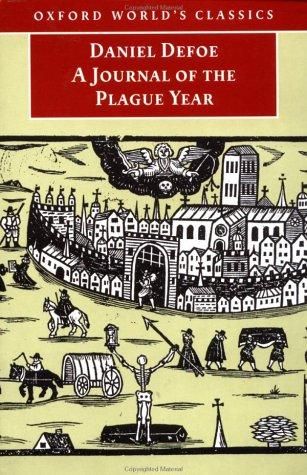


Village constable: Why you will not pretend to quarter us by Force, will you? There is snappy dialogue, set out as if in play: There’s a wonderful piece of theatre where the men manage to convince people at a checkpoint that they are among a squad of armed and dangerous military men and have to be allowed to travel. “Their Story has a Moral in every Part of it,” he says, “and if there was not other End in recording it, I think this a very just one, whether my Account be exactly according to Fact or no.” Theirs is fantastic adventure, with fraudulent documents and encounters with hostile, frightened people protecting their villages from the infected. Most notably, Defoe gives a long, rambling account of three men (John, Richard and Thomas) who fled London and admits that this tale is not strictly documentary. It is full of details that can only have come from the imagination. That’s not the only thing that calls the veracity of the account into question.

That’s a pretty amazing claim, given the moment late on in the book where our narrator describes Old Bethlem churchyard and says: “The Author Of This Journal, lyes buried in that very Ground, being at his own Desire, his sister having been buried there a few years before.” As late as 1919, Watson Nicholson wrote in his book The Historical Sources of Defoe’s Journal of the Plague Year that “there is not one single statement in the Journal, pertinent to the history of the Great Plague in London, that has not been verified”, and that it should be regarded as “authentic history”. In 1809, Edward Wedlake Brayley wrote in his book The Beauties of England and Wales that the Journal was “a genuine piece of history” and doubled down in 1835 when he edited the Journal and claimed it was “emphatically not a fiction”. There’s also evidence that people took it to be serious reportage on into the 19th century, even after Defoe’s authorship of the book had been established. Later editions of the book were presented as history and it was cited as such throughout the 18th century in other books about the plague. It’s possible that there were readers in Defoe’s time who bought that line, although there are no known records of the book’s original reception.


 0 kommentar(er)
0 kommentar(er)
